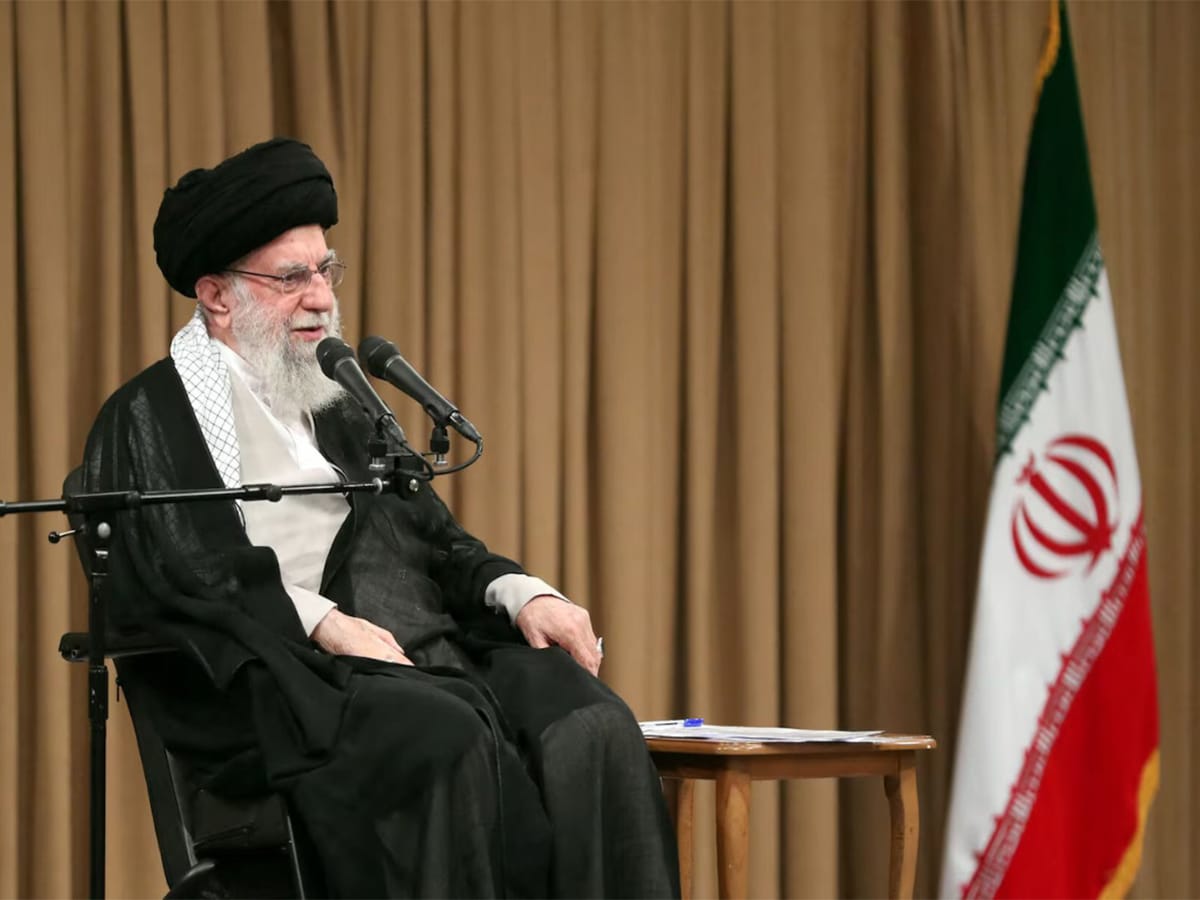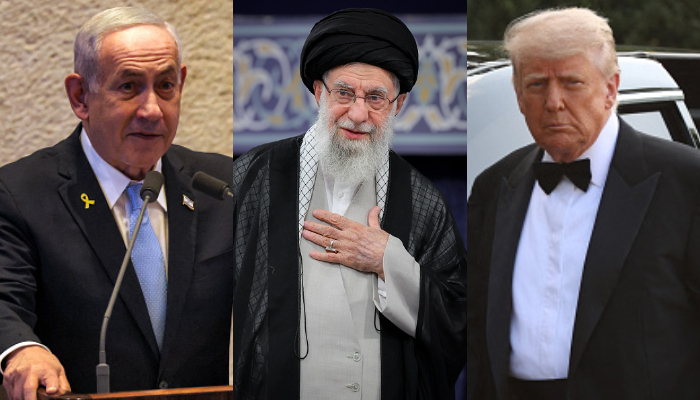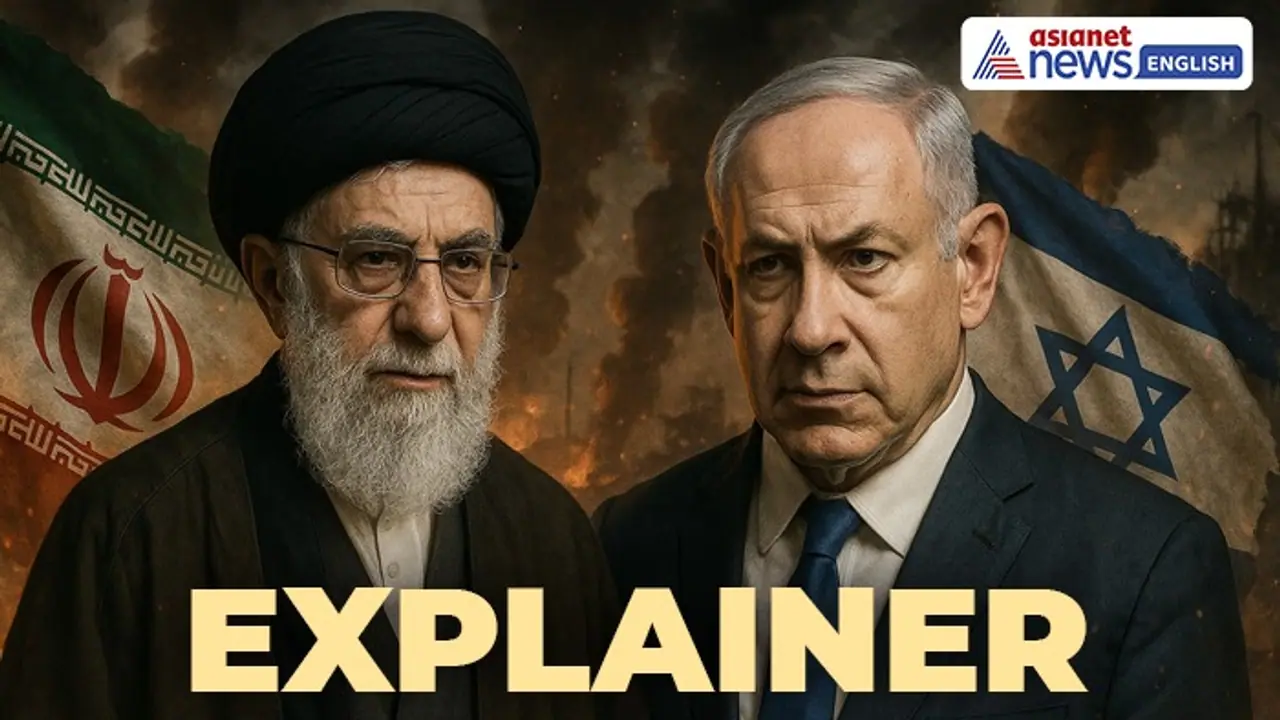Born into a modest clerical family in Mashhad, Ali Khamenei’s journey to becoming Iran’s Supreme Leader is rooted in revolution, faith, and power. Today, he stands at the heart of Iran's clash with Israel
'We must give a strong response to the terrorist Zionist regime. We will show the Zionists no mercy...'. This war cry was posted by Iran's supreme leader Ali Khamenei early in the morning.

In light of this, let's take a moment to draw attention to how Ali Khamenei emerged as the 'Supreme Leader' of Iran after being born into a modest clerical family from Mashhad, Iran.
His Early Life
Born in to a family of eight siblings, Ali Khamenei was the second child. He was born to Seyyed Javed Khamenei and Khadijeh Mirdamadi. His father was of Azerbaijani origin and his mother traced her roots to Yazd province of Iran and was a Persian by birth.

Religious Studies
Born in the spring of 1939, Ali Khamenei, travelled to Najaf during 1957 but had to return back due to his father's declining health. However, his interest in Shia theological studies made him relocate to Qom, where he came under the direct tutelage of Ruhollah Khomeini. Ruhollah Khomeini became the first Supreme leader of Iran after the Islamic revolution of 1979.
Iranian Shah's White Revolution Vs Ali Khamenei
Iran at that point was under the Shah's rule. It was ruled by Shah Mohammad Reza Pahlavi. Starting 1963, the Shah embarked on a series of changes often termed as Iran's 'White Revolution'. It included land redistribution, health care and some liberal social and legal reforms.
- Land Redistribution Reforms
The Shah almost forced large landowners to give up their lands to decrease wealth inequality in the country.
- Social and Legal Reforms
He legally raised minimum age for marriage in Iran and granted women the right to vote and run for office in government organizations. He also encouraged women to become Lawyers and Judges.
Ali Khamenei's Opposition
Ali Khamenei saw these rapid modernization of the Iranian society as colonial and western. He saw secular education as anti-Islamic and these reforms as being subservient to the West, especially towards USA.
The Shah too ruled with an iron hand in spite of the apparent reforms he was bringing in the country. Any opposition to his ideas were brutally supressed by the secret police force.
The Shia Ulama's saw it upon them to start re-engaging with political elements in order to stop the Shah's aggressive modernization. Ruhollah Khomeini wanted to embed Shia theological doctrines in a framework for political resistance against the Shah and for a new revolution.
Khamenei started actively organising anti-Shah protests which saw him arrested at least six times and was also exiled.
His ideas were profoundly aligned with Khomeini's ideology and he found entry in his inner circle within the still nascent Islamic republic. He was entrusted with the following posts:
A) He was appointed the supervisor of IRGC
B) He was also appointed as Tehran's Friday prayer Imam, as very significant post.
Assasination Attempt
In 1981, there was an assassination attempt on his life by the leftist organization Mojahedin-e-Khalq, The attack left his right arm permanently paralyzed. He is thus seen to shake hand with his left hand.
After this, Ali Khamenei, rose to being the President of the country and served for two consecutive terms until the death of Ayatollah Khomeini.
Succession
On August 6 1989, 2 months after Khomeini's death, he assumed the role of the most powerful position of the Iranian Islamic Republic - it's Supreme Leader. This position granted him to authority over the military, judiciary and every other aspects of Iranian life.
Domestic Control
He quickly consolidated power and while maintaining. From ruthlessly crushing the Iranian version of 'Tulip Revolution', also known as the Green revolution to actively investing in the so-called resistance groups of Houthis of Yemen, Hezbollah of Lebanon and Hamas of Gaza. The Mahsa Amini protests in 2022 earned widespread International condemnation from human rights groups. The UN experts 'strongly condemned' the death of 22-year old Mahsa Amini who died in police custody after she was arrested for wearing 'improper hijab'.
Israel's covert operations in Iran and the threat to Ali Khamenei's Life
Israel has systematically eliminated top Iranian Nuclear scientists in order to derail weapon development by the Islamic Republic.
From Masoud Alimohammadi, Majid Shahriari, Fareydoon Abbasi-Davani, Darioush Rezaeinejad to Mostafa Ahmadi Roshan, Israel is widely believed to have done these by Mossad's wide network and remote controlled weapons. Israel had stopped short of taking credit for these killings publicly. In 2020, Mohsen Fakhrizadeh who is widely known as Iran's 'Oppenheimer' was killed outside Tehran. The Israeli media claimed that Mossad was allegedly behind this operation.
On December 2024, Israel even managed to oust the then Syrian president Bashar Al- Assad who was covertly supported by the Iranian regime as well by Russia.
Thus, Israel through Mossad's highly capable intelligence network has time and again shown how able they are in eliminating top officials. It should not be forgotten that Israel is also backed by US intelligence. The US President in 2020, ordered the killing of Qasem Soleimani by drone attack near Baghdad International Airport.
Ongoing Conflict with Israel
The Iran-Israel conflict has entered 6th day and if experts are to be believed it has all the potential to develop into a full fledged war in the middle-east. Israel has been long critical of Iran's nuclear program which it believes will tilt the power axis in the region in favour of Tehran. Benjamin Netanyahu, has in no uncertain terms, hinted that they might not stop at eliminating 'the Supreme Leader'. US President Donald Trump on the other hand said that the US will not kill Khamenei 'for now' and that they exactly know where he is. He called on for 'unconditional surrender'.

Thus, previous accounts of covert operations and killings hint at all possibility and Israeli capability to hunt down Ali Khamenei should they wish to. Whatever the course of the ongoing conflict be, there is no doubt that escalation of this nature is detrimental to regional peace.


